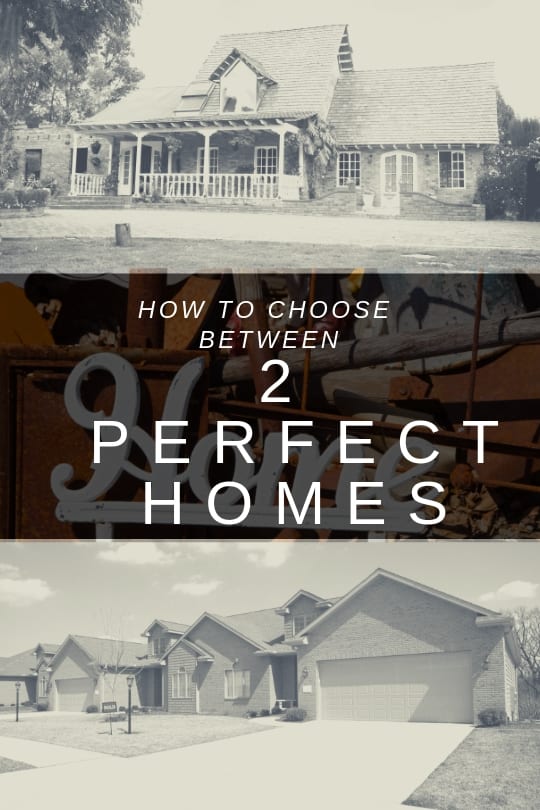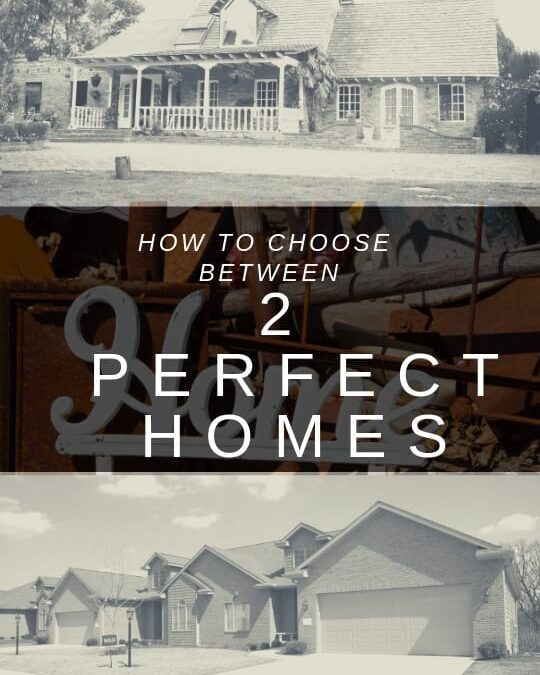 So you’ve been to some open houses, gone on some tours, and now find yourself in an unusual dilemma: two houses that seem perfect for you. In a way, it’s a good problem to have — better to have multiple options than none, right? But it can also be anxiety-inducing to have to choose. And although we can’t make the decision for you — and neither can your real estate agent — we can give you a few points of advice about how to come to a decision. Don’t flip a coin (or your wig). Read on:
So you’ve been to some open houses, gone on some tours, and now find yourself in an unusual dilemma: two houses that seem perfect for you. In a way, it’s a good problem to have — better to have multiple options than none, right? But it can also be anxiety-inducing to have to choose. And although we can’t make the decision for you — and neither can your real estate agent — we can give you a few points of advice about how to come to a decision. Don’t flip a coin (or your wig). Read on:
-
Consider the Age of the Home
Maybe the two homes are the same age. But if they aren’t, consider the impact that an older home can have on your life as you age with it. Older homes have a lot of charm… but they can also need more repairs, and maybe more quickly. Would you rather replace a roof in 10 years, or in 25? Do you relish the thought of dealing with old plumbing? A newer home could make your life easier in the short term and might be cheaper to maintain. You can obtain a lot of information about a home’s age from its owner — alternately, you can contact the county assessor, who can give you information about the home’s age and major repairs. The assessor can also tell you how much you’ll be paying property taxes for each home.
-
Think About the Money
If the two homes are the same price, then money isn’t an issue. But if they aren’t, you could frame your decision in financial terms. If you love both homes, why not buy the cheaper one? Home ownership is an expensive choice, and your finances don’t just take a hit when you close. You’re also signing up for years of maintenance. If you buy the cheaper home, consider setting the cost difference aside in a repair fund. Your future self will thank you.
-
Talk to Your Neighbors
One of the real joys of homeownership is feeling a kinship with your neighbors and being a part of the community. If you really can’t decide between two homes, talk to the neighbors. If there’s a neighborhood association, attend a meeting. Ask yourself: Do I really want to spend years of my life in close proximity to these people? You’ll be making small talk, attending parties, or fetching your kids’ baseballs from their yards for years. Make sure you can live with them — and if you can’t, maybe it’s not the perfect house for you after all.
-
Go to School
If you don’t have children and don’t plan to have any, skip this piece of advice. Otherwise, think about your children and their education, even if you don’t have any yet. Which house is in the better school district? Do some research about local schools: Attend a school board meeting, schedule a tour, or attend an open house. Sites like niche k12 offer testing statistics, user reviews, and contact information for hundreds of thousands of schools nationwide — public, private, and charter. But it’s always best to see for yourself how well the area’s schools match with your own educational goals for your child, as well as his or her temperament and needs. It could make the difference between the two homes on your list.
-
Ask Your Real Estate Agent
Obviously, it’s not a real estate agent’s job to tell you what to do. But if you have a good relationship with your agent, and you trust his or her advice, ask for it. Your agent has seen you every step of the way and probably showed you these houses in the first place. They might be able to clue you into something you’re missing or tell you why they thought you’d respond strongly to these houses in particular.
Decided yet? If not, sleep on it, make a pro/con list, ask a neutral observer, consult the tarot. If all else fails, go with your gut. If both houses are perfect for you, you can’t go wrong.
Thanks to Sam Radbil, a contributing member of the marketing and communications team at ABODO, an online apartment marketplace. ABODO Seattle apartments were founded in 2013 in Madison, Wisconsin. And in just three years, the company has grown to more than 30 employees, raised over $8M in outside funding and helps more than half a million renters find a new home each month.

